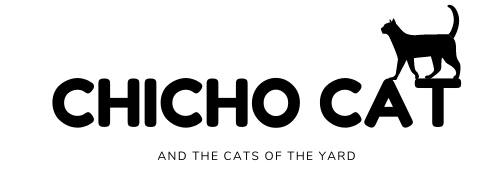Cats are often portrayed as finicky eaters with specific dietary preferences. It’s natural to question whether certain human foods are safe for your furry friend. Eggs, a staple in many households, may prompt the query: Can cats eat eggs?
Nutritional value of eggs
Eggs are a nutrient-rich food containing various essential elements beneficial for humans. They’re a prime source of protein, vitamins, and minerals (also fruits as avocado or blueberries are full of them). However, when it comes to sharing our food with pets, especially cats, caution is advised.
Are Eggs Safe for Cats?
The good news is that eggs can be a part of a cat’s diet in moderation. They are an excellent source of digestible protein and contain amino acids that are vital for a cat’s health. In fact, some commercial cat foods also incorporate eggs as an ingredient due to their nutritional value (more information here).

Preparation and Moderation
When considering giving eggs to your cat, it’s crucial to prepare them appropriately. Serving plain, cooked eggs without any additives like salt or spices is the safest option. Scrambled or boiled eggs are preferable as they eliminate the risk of any potential bacteria.
Potential Concerns
While eggs can offer nutritional benefits, certain aspects need consideration:
Allergies: Some cats might be allergic to eggs, resulting in digestive issues or skin problems (possible signs that your cat is sick). It’s recommended to introduce eggs gradually into your cat’s diet to observe any adverse reactions.
Biotin deficiency: Feeding raw egg whites over an extended period can lead to a biotin deficiency in cats. Raw egg whites contain avidin, a protein that can bind to biotin, hindering its absorption in the body. Biotin is a crucial B-vitamin necessary for maintaining a healthy coat, skin, and proper metabolic function. However, cooked egg whites do not pose the same risk.
Can Cats Safely Consume Raw Eggs?
The question of whether cats can eat raw eggs often arises among pet owners curious about expanding their feline’s diet. While eggs provide essential nutrients, feeding raw eggs to cats comes with certain risks.

Potential health risks
Aside from biotin concerns, raw eggs also carry a risk of bacterial contamination, such as Salmonella or E. coli. These bacteria can cause digestive disturbances and, in severe cases, lead to illness in cats.
Can cats eat eggs cooked?
Cooked eggs can be a safe and nutritious addition to a cat’s diet. When prepared properly, eggs offer a protein-packed treat for feline companions without the risks associated with raw eggs.

Benefits of Cooked Eggs
By cooking the eggs thoroughly, this risk is mitigated, ensuring that your cat can enjoy the nutritional benefits of eggs without compromising their health.
Safe Preparation
Scrambled, boiled, or poached eggs without any added spices, salt, or cooking oils are ideal for cats. Offering plain cooked eggs in small quantities can provide a protein boost to your cat’s diet.
Can cats eat scrambled eggs with cheese or butter or milk?
Scrambled eggs might seem like a tempting treat for your feline friend, especially when prepared with cheese, butter, or milk. However, it’s crucial to understand the potential implications of adding these ingredients to your cat’s eggs.

Cheese
While some cats might enjoy cheese, many are lactose intolerant. Cats lack sufficient lactase, the enzyme needed to digest lactose in dairy products. Feeding cheese could lead to digestive issues like diarrhea or an upset stomach.
Butter
Butter contains high levels of fat, which may upset a cat’s stomach and lead to pancreatitis or gastrointestinal distress. Its richness can also contribute to obesity if consumed regularly.
Milk
Similar to cheese or other dairy, milk contains lactose. Feeding milk to cats, even in small amounts, can result possible health issues.
Can cats eat fried eggs?
Fried eggs, a common human delicacy, might prompt curiosity about whether they’re suitable for feline consumption. However, offering fried eggs to cats raises some concerns.

Additives and seasonings
Additionally, fried eggs might include added spices, salt, or seasonings, which aren’t suitable for feline diets. Cats have specific dietary requirements, and additives like salt or spices can upset their stomachs or cause other health issues.
Safer alternatives
Instead of fried eggs, opt for boiled or scrambled eggs prepared without any additional ingredients. Plain cooked eggs, when offered in moderation, can be a safer and healthier option for your feline friend.
Can cats eat boiled eggs and especialy hard boiled eggs?
Boiled eggs, particularly hard-boiled ones, present a safer option when considering eggs for feline consumption. Compared to raw or fried eggs, boiled eggs offer a more straightforward and potentially safer choice for cats.
Safety of boiled eggs
Boiling eggs eliminates concerns associated with raw eggs, such as the presence of avidin. Hard-boiled eggs, when served plain without any additives, can be a nutritious and easily digestible treat for cats.

Can cats eat chicken eggs?
Chicken eggs, a dietary staple for many households, may raise questions about their suitability for feline consumption. Fortunately, chicken eggs can be a safe and beneficial addition to a cat’s diet when served appropriately. The protein content in eggs can aid in muscle development and provide necessary nutrients for overall feline health. Overfeeding eggs can upset the nutritional balance
Can cats eat quail eggs?
Quail eggs, smaller in size compared to chicken eggs, may intrigue pet owners considering diverse dietary options for their cats. These eggs offer potential nutritional benefits but require careful consideration before being included in a cat’s diet. However, due to their smaller size, serving a quail egg to a cat might not provide significant nutritional value compared to a chicken egg. Consider the size and nutritional impact when incorporating quail eggs into your cat’s diet.

Can cats eat duck eggs?
Duck eggs, slightly larger than chicken eggs and with a richer taste, might intrigue pet owners exploring diverse dietary options for their feline companions. However, considerations should be made before incorporating duck eggs into a cat’s diet. Individual cats may have varying reactions to duck eggs due to differences in protein composition or potential allergies.

Can cats eat eggs and cheese?
The question of whether cats can eat eggs and cheese together often arises among pet owners seeking to diversify their feline’s diet. While eggs have nutritional value for cats, cheese introduces potential concerns due to lactose intolerance.
How often can cats eat eggs?
Eggs serve as a protein-rich treat for cats, but determining how often to incorporate them into a feline’s diet requires careful consideration. While eggs offer essential nutrients beneficial for cats, including protein and amino acids, they should be fed in moderation. Considering eggs as an occasional treat is advisable. Offering eggs once or twice a week, in small portions, can provide variety and supplemental nutrients without overloading the cat’s diet.

Can cats eat eggs with salt and pepper?
When considering offering eggs seasoned with salt and pepper to cats, caution is advised due to potential health implications.
Salt concerns
Excessive salt intake can be harmful to cats. Cats have lower tolerance for salt compared to humans, and high levels can lead to electrolyte imbalances, kidney issues, or even sodium poisoning.
Pepper and seasonings
Pepper and various seasonings commonly used in human foods can irritate a cat’s digestive system. Spices like pepper may cause gastrointestinal upset or allergic reactions in cats.
It’s advisable to avoid adding salt and pepper or any seasonings to eggs intended for cats. Cats have specific dietary needs, and seasoned foods can pose health risks or cause discomfort.

Consulting a veterinarian
Before introducing any new food into your cat’s diet, it’s advisable to consult your veterinarian. They can provide personalized guidance based on your cat’s health condition, age, and individual dietary requirements. Veterinarians can also offer advice on the quantity and frequency of egg consumption that suits your cat.
In conclusion, eggs can be a safe and nutritious addition to your cat’s diet if served in moderation and cooked thoroughly. They offer a protein-packed treat for your feline friend, but it’s essential to be mindful of potential allergies and moderation to prevent any adverse effects on your cat’s health.








